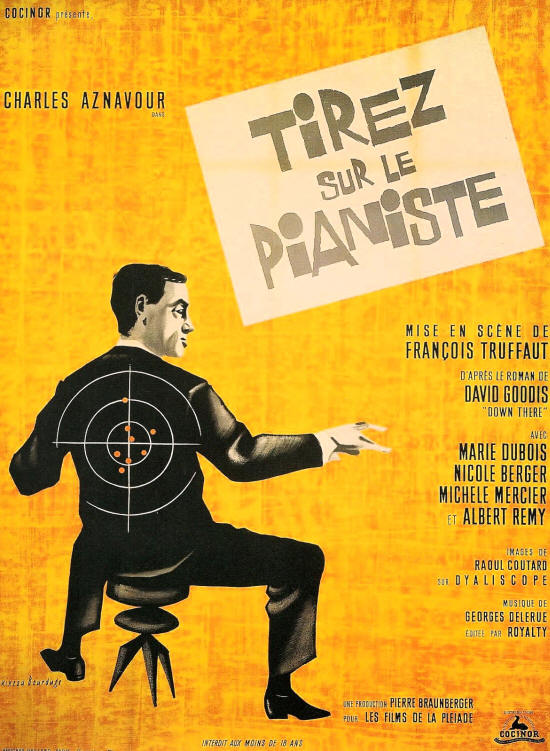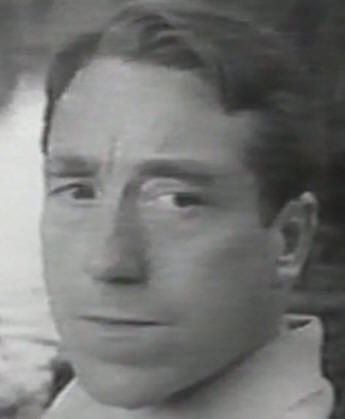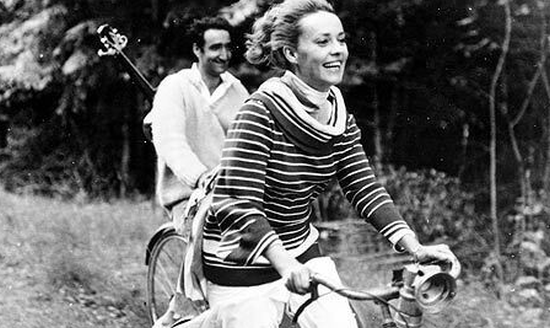home
films
tv
biog
news
shop forum
more
all sites
Ken Russell articles
|
Georges Delerue, a
documentary on the composer The Ken Russell interviews: Well I havenít seen that [Donīt Shoot the Composer] for thirty years. I directed the film , and as I pointed out I actually appeared in it. And it was a satire on a BBC film unit making a serious documentary on a famous French composer and we did it in three different styles. Youíve seen one of them, we did it as a silent movie, where the composer would have written appropriate music, for such a sort of speeded up slapstick approach. We also did more serious versions but that was the last one, and I think the funniest. One of the greatest things about George was he could actually put so much more onto a scene and add to your original concept and transform it from "not a bad idea" into a spectacle. Georges had a unique talent that every directorís looking for, the ability to enhance the directors work. If you had a comedy scene and it wasnít as funny as you would have liked it to have been, Georges could make it funnier. If you had, you wanted to evoke a beautiful sunny day and it was raining Georgeís music could bring the sun out, now not many people can do that, only God and Georges Delerue could do that so a lot of people when they began to discover how great he was wanted his talents and I realised that there was a very unique character here, that there was a person writing film music like nobody ever had and nobody ever would so I wanted to make a film on him myself and thatís why I made this film, as a homage to the greatest film composer that ever lived. [a scene from Russellís film] Pure can-can, Offenbach would be proud.
He came to my attention in Jules et Jim and the score to that
film was as important as the film itself.
The lyrical quality that he brought to three people on bicycles riding though the countryside was absolute magic, nobody else, no other film composer I know of, at the time, could possible have achieve that.  And then in Donít Shoot the CÖ I nearly called it Donít Shoot the Composer which is the name of my little film, Donít Shoot the Pianist, he again produced a memorable score, I remember him telling me that Aznavour as the cafť pianist was just strumming along, he wasnít playing an actual tune on his pianoÖ Well I am constantly being told that this [the wrestling scene from Women in Love] is one of the most remarkable sequences from probably the best film I have ever made. Whether that is true or not only history will tell. Certainly the power of the scene is greatly enhanced by the music of Georges Delerue but itís not the exact music that he wrote for that particular sequence. He saw the film and realised that that had a tremendous power and significance and he wanted toÖ felt inspired toÖ and a responsibility to write some music to match the importance of that scene and in musical terms a fugue is a very serious form and he decided to write a prelude and fugue as Bach and his contemporaries and many other great composers ever since conceived this as a great musical statement. Well, it was good in theory but actually in practice it didnít work, the actual fugue which is a very serious thing with cellos and basses grinding away with a not very inspiring theme, actually worked against the picture and simply the form did not fit the action so what I had to do was to cut out the fugue and use the prelude, actually the prelude had tremendous, a sort of growing intensity and power so it worked and the fact that it cut off just as the moment when the two men collapsed worked extremely well so a film is often like that, its malleable its like a piece of clay you can work it and rework it and the same goes for music, I frequently use different kinds of music than the composer intended, he might write a composition for the opening titles which I think is tremendous for the fight sequence in the middle of the film and so its all grist to the mill you use it tomake the greatest effect of picture and music and thatís what we are after as directors, we want tremendous maximum impact of picture and music to give our emotional concept a real meaning so it affects the audience and they come away absolutely transfigured. ... Nothing is sacrosanct in film, the weather is never exactly as you want it, the music is never as you want it, the acting is never exactly as you want it, you never feel as wonderful as you feel you should feel when you are shooting the film, the cameraman can have a day off, the sound man can go wrong, if the are sixty people involved, so the chances of it all being perfect are minimal, and that goes for the composer writing the music as well. He has just seen your pictures, they are not his pictures and heís doing his best to enhance the emotion he realises you are trying to achieve well he may well have a day off so you can help him by moving the music a bit this way a bit that way or throwing out that piece of music altogether and getting another piece of music he wrote for a different scene to put in your particular scene and suddenly it all comes to life and the point is you know as a director when it works and when music and pictures work together thereís nothing to match it. Images from Donīt Shoot the Composer and the poster of Jules et Jim. Dialogue, forget it, its music and pictures and god bless you Georges Delerue for giving us directors a helping hand.
|

